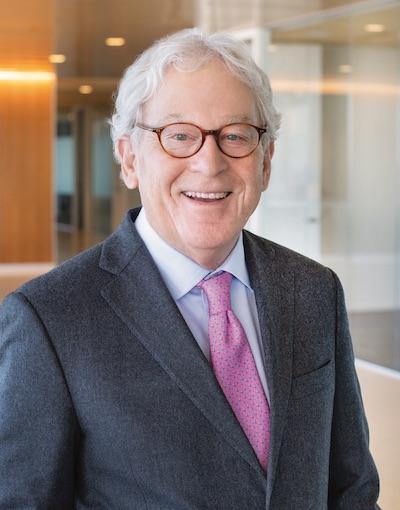Byron Starns, ’69: From the South to the Midwest, a Commitment to Environmental Law

Just a few years after he graduated from the Law School, Byron Starns, ’69, found himself representing the state of Minnesota in what would become one of the longest and most consequential environmental enforcement trials in American history. The case helped propel Starns to a distinguished career largely focused on environmental issues.
He first got involved with the case, US v. Reserve Mining, just after joining the Minnesota attorney general’s office. The fact that he was in that office at all is an early testament to his tenacity. He had interviewed on campus with the AG’s office during his second year but been turned down. “Among other things, I had grown up in the South, and I don’t think they really believed that a guy from the South would want to make a long-term commitment to living in Minnesota,” Starns recalled. Undaunted, he later drove to Minneapolis, asked again for the job, and got it.
The trial began in 1973. Starns, as Minnesota’s lead counsel, appeared in court virtually every day for nearly 10 months. As the only trial attorney on the government side who argued appeals, he argued before the US Court of Appeals 11 times. “I got more experience from that case in one year than I might have seen in 10 years,” he said. “More importantly, the decision established several important principles of environmental law, including the most fundamental one of all, that the government has the right to regulate pollution, and that it can apply the precautionary principle to require mitigation of potential risks. We pretty much take those things for granted today, but they were new legal ideas back then.”
While he was still working on the Reserve Mining trial and several other cases, Starns was appointed as Minnesota’s chief deputy attorney general, responsible for managing the 150-lawyer office. After filling that position for about four years, in 1979 he joined the firm where he is still practicing today, Stinson LLP (Leonard, Street, and Deinard at the time he joined). Among other things, his cases at Stinson have established principles of law related to the scope and timing of environmental impact statements, remediation of Superfund sites, and payments by utilities to alternative energy suppliers. He has also handled complex litigation in other areas of law, including antitrust, consumer protection, and intellectual property.
“I got two kinds of education at the Law School,” he recalled. “When I came up to Chicago by train for the start of classes, it was the first time I’d been in a big northern city. I learned a lot about Chicago and its people when I drove a city bus as my summer job after our first year, and it was a time of significant social unrest. At the same time as my eyes were being opened societally, the academic side of my life was electrifying. With no lawyers in my family, I was learning what the profession meant, and I was learning it from many of the smartest people I had ever met—not just the amazing faculty, but my fellow students, too. I couldn’t have come to the Law School except for a scholarship I received, and I was pinching myself every day to make sure it all was real.”
As he considers the possibility of retiring—one side of that consideration includes several important cases he’s been handling for many years that he would like to see through to their conclusions, and the other side includes six grandchildren in far-flung locations for him and his wife to visit—he has some advice for the next generations of lawyers. “Overall, good lawyering is about relationships, teamwork, and understanding yourself and others, and at least in my career, those have been some of the most enduring sources of enjoyment and satisfaction,” he said. “Today, we’re becoming very transactional, commodifying our work and often reducing it to dollars and cents. There are a lot of money pressures on young lawyers today, from paying back loans to meeting billable-hours requirements, but I hope they’ll be sure that they are building relationships and savoring them, because your life and your career are too short not to.”